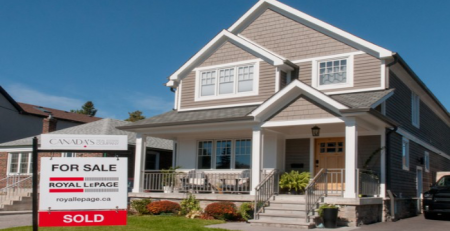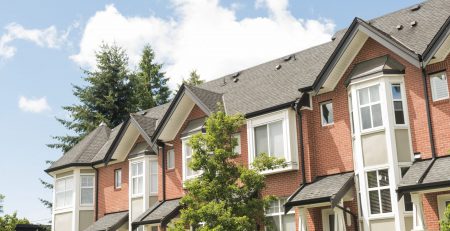Home improvement business is booming amid COVID-19 pandemic
[Globe and Mail – October 21, 2020]
Paul Sangha has run a busy architectural landscape business for most of two decades, but by the end of 2019, business was “dead quiet,” and Mr. Sangha was preparing for a rough year. He had to lay off four staff.
When the lockdown hit in mid-March, Mr. Sangha began paying staff their salaries in advance to give them a sense of certainty. But then something strange happened. Business suddenly picked up. By May he was getting calls from Saskatoon and even Amsterdam, markets he’d never worked in before. And the new business hasn’t stopped coming his way.
“It kept going at a feverish pitch … we were getting several calls a week,” Mr. Sangha says. “Now we’ve gotten to a point where we simply can’t take on any more – we are inundated. I have to bring a person back into the office, and we are looking [to hire] another person.”
The pandemic has had a curious side effect for businesses related to home improvement. Homeowners stuck at home want to update and enhance their surroundings, and with more savings in the bank due to the lack of overall spending, they’ve got the money to do it. The summer was particularly busy because no one took their usual vacations.
Mr. Sangha says his newer clients are above average income earners who want to create outdoor entertainment spaces, or vegetable gardens – even chicken runs. (Those clients also have large Pyrenees dogs to guard the chickens.) Because people are leaving the city and buying properties in secondary markets, work has picked up on Vancouver Island, in places such as Pemberton, the Sunshine Coast, Squamish and the Fraser Valley.
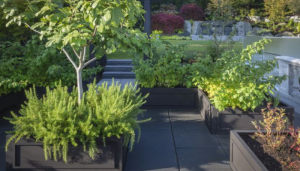
Paul Sangha says his newer clients are average income earners who want to create outdoor entertainment spaces, or vegetable gardens. PAUL SANGHA CREATIVE
“It’s been one of the highest job counts I’ve had,” he said. “In terms of the scale, they are more mid-size to smaller range, which is more indicative of a more local investment into the economy, as opposed to foreign money coming in and doing big purchases,” Mr. Sangha says.
“At one point I would have said that the marketplace here was more reliant on influx of money from out of town. But really, these are local people doing things with their own properties, or buying properties that are in the countryside where they can get away from things. And the focus really has shifted to, ‘how can I make this work so I can age in place?”
He says that people are often mentioning a legacy property, as in creating a large family compound-style residence that is multi-generational. People are looking at being self-sustaining.
Joel Trigg, co-owner of Squamish-based Daintree Industries, says he is enjoying his best year since the company started the design and manufacturing business a decade ago. Daintree makes custom millwork and furniture for mid- to high-end homes, as well as interior designs for homes and offices, and wine racking systems. The wine storage part of the business has especially taken off, he says, a sign of how people are spending their down time during a pandemic.

Joel Trigg, co-owner of Squamish-based Daintree Industries, says the wine storage part of the business has especially taken off. DAINTREE INDUSTRIES
“I guess people have had time to think about what’s important and what to spend their income on – if they still had an income.”
He adds that his clientele are generally wealthy people who own multiple homes.
“We are lucky enough that the clientele we do deal with typically weather the storms.
“We didn’t see the stop we thought we would in terms of new projects coming up. And the projects well under way didn’t really skip a beat.”
The only setbacks have been slower delivery of materials, and a shortage of tradespeople, who are also super busy, Mr. Trigg said.
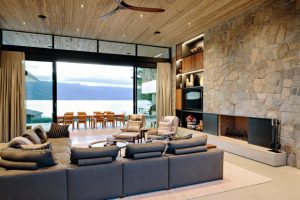
Summerland house renovations by Squamish, B.C.-based Daintree Industries. DAINTREE INDUSTRIES
The rental market is also experiencing changes that are requiring renovations and updates, keeping the trades busy. The vacancy rate has increased slightly, partly due to the absence of international students, and some landlords are more willing to accommodate renter demands if they want to keep their buildings full, said Lance Coulson, CBRE executive vice-president, national apartment group B.C.
Mr. Coulson said that B.C. landlords represented a sizable portion of a recent national CBRE survey of 80 landlords holding 200,000 units across the country. It showed that, due to physical distancing, landlords are experiencing an increased demand for ensuite laundry, balconies, walk-ups instead of elevators, and home offices. For those reasons, boutique buildings with 30 or 40 tenants, as opposed to towers, are proving more popular with tenants.
Leasing of units is taking a little longer than in previous years, depending on the location and condition of the building, Mr. Coulson says.
“It’s about whether they are going to get the same rent or not. Some landlords will have to do an upgrade because tenants have more choice, and if they don’t want to lose a month or two months, they will have to do things [to the unit],” Mr. Coulson says.
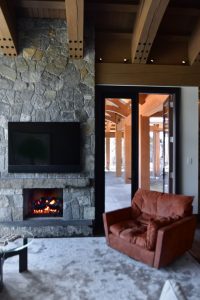
Whistler house renovations by Daintree Industries. DAINTREE INDUSTRIES
But the advantage for landlords is that long-term tenants are also leaving, he adds. He estimates that the Metro Vancouver vacancy rate might be somewhere between 1.5 per cent and 2.5 per cent, depending on the neighbourhood. But he believes that once international travel begins again, the rate will drop back below 1 per cent, where it had been for several years.
In the meantime, the higher turnover means landlords can start generating some cash flow, he says. They can update the units and charge more. Large bachelor suites can be converted to more desirable junior one-bedrooms with a wall added.
“We are seeing legacy suites come up, which is a suite where the tenant has been there for 10 or 15 years – and that’s great for landlords, because those rents are drastically under market.”
Mr. Sangha doesn’t believe that the current homesteading and desire for a family compound is a temporary phenomenon. Clients are making decisions on where to live and how to live for the long-term.
“The most common thing I hear now is, ‘you know that this it will happen again,’ so there is an awareness that this is not a one-off thing, that moving into the future there is the potential of a pathogen becoming an issue for you or anybody. That’s why there is that long-term commitment to this
“To have a quality of life that you can depend upon, you need to do things differently.”





